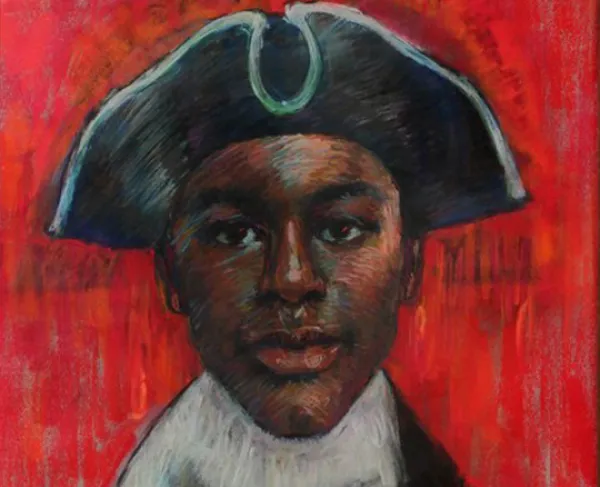John Waller

Best known for his two letters describing the Battle of Bunker Hill, Lieutenant John Waller fought for the British in the 1st Battalion of Marines.
Born in Sandwich in Kent, England, probably in the late 1740s or 1750s, Waller’s family had a tradition of military service. His father was a captain in the British Royal Navy and extended family members were also officers. John Waller followed in their footsteps, joining the British Marines. His exact birthdate and enlistment are not known at this time, but since he was a junior officer in 1775, he was probably in his 20s when he fought at Bunker Hill.
He likely joined as an officer and probably had a purchased commission, a typical practice for officers from affluent families joining the British military in the 18th Century. Marines served aboard warships. They were a type of police force to keep guard supplies, maintain order, guard sailors landing on hostile shores and acting as riflemen in naval battles.
As tensions increased in the 13 British colonies along the eastern shore of North America, more British troops and warships were sent. The 1st Battalion of Marines commanded by Major John Pitcairn disembarked in Boston in March 1775. Waller arrived in a city with many citizens at odds with British troops, and he would have known or quickly become aware of the hostility from many locals. British governor General Thomas Gage tried to seize gunpowder and weapons in outlying towns which alerted and enraged local militia. On April 19, 1775, a British column headed west toward the village of Concord searching for a stockpile of military supplies. Shots were fired at Lexington’s village green, Concord’s North Bridge, and from ambushes along the road back to Boston.
Though Major Pitcairn and a detachment of British Marines marched in this British expedition, there is no currently known evidence that Lieutenant Waller was present at Lexington or Concord. The effects of that day changed the military situation in Boston, though. Massachusetts militia followed the British back to Boston and set up camps nearby, blocking exits from the city. By June 1775, British generals planned to seize strategic high ground. The American militia started to fortify Breed’s Hill and Bunker Hill, directing the British attention toward that high ground beyond Charlestown.
On June 17, 1775, the Battle of Bunker Hill unfolded. British infantry and marines crossed the Charles River in boats, disembarked, and prepared to attack up the sloping ground crisscrossed by strong fences. Militiamen waited in defensive positions and fortified trenches to fire on the advancing British. The Marines took part in the last assault on the Americans’ position, coming to support of the infantry. Lieutenant John Waller, serving as adjutant for the 1st Battalion of Marines at the time of the battle, and he later wrote repeatedly about his duties forming the line of Marines before and during the attack. As the unit advanced, fences and stonewalls hindered their movements forcing them to pause while under fire. Reaching the British infantry further up the slope, the troops were “jumbled together” as Waller later recalled.
“in this situation we received a Check (tho' without retreating an Inch) from the very heavy and severe Fire from the Enemy in the Redoubt, and in this Spot we lost a number of Men, besides the irreparable loss of poor Major Pitcairne… we remaind about Ten Minutes or near a Quarter of an Hour in this dangerous situation, where the poor Fellows were kill'd as I was directing the Files how to level their Fire, at length half mad with standing in this situation & doing nothing towards Reducing the Redoubt, I requested Colonel Nesbit to form upon our Left in order that we might advance to the Enemy with our Bayonets without firing: this was with difficulty perform'd….”
The coordinated advance of the marines and the infantry broke through the militia line. “The Horror of the Scene within the Redoubt” continued with hand-to-hand combat. After seizing the redoubt, the marines advanced toward Cambridge, eventually encamping for the night opposite the militia defenses there. Waller survived the Battle of Bunker Hill, but he mourned the loss of fellow officers and friends. He wrote two letters which had been preserved—the first on June 21 to an unidentified recipient and the second on June 22 to his brother Jacob. Waller recognized the heavy losses and described the difficulties of the advance at Bunker Hill, but he wrote that the British had achieved an important victory and were determined to further subdue the “rebellious rascals.”
In March 1776 when the British left Boston, the Marine Battalions returned to shipboard duties. Lieutenant Waller may have been involved with his fellow marines in other Revolutionary War land battles or remained active in his duties aboard a ship off the coast of North America. In 1781, he died in Jamaica, New York; the cause of his death is not known at this time.
Related Battles
450
1,054





